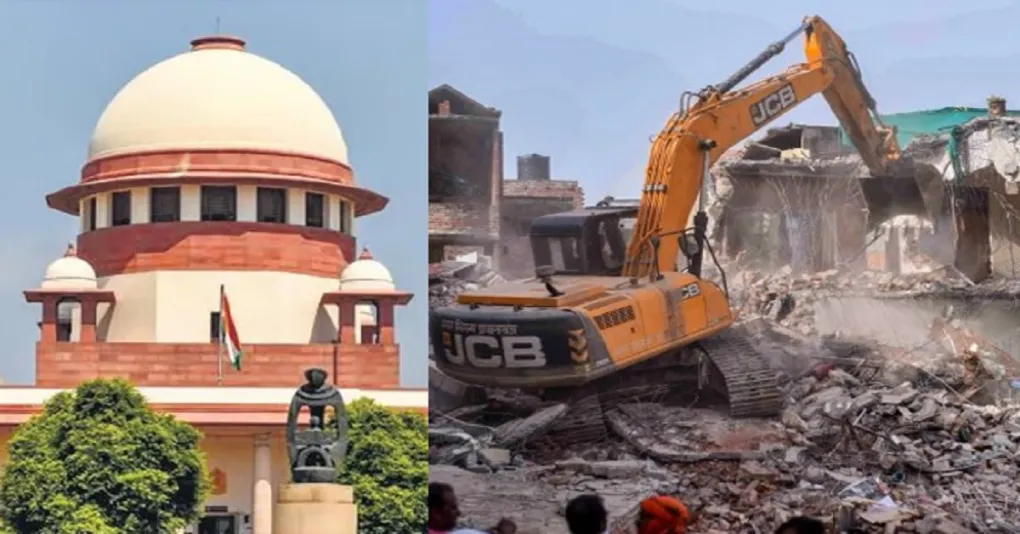The Highlights:
In a landmark ruling, the Supreme Court of India has finally taken the first step toward regulating what has been termed “bulldozer justice,” a resoundingly contentious practice of razing the properties of accused persons. Emphasis on the exercise of due process and protection of constitutional rights lies in the heart of the ruling, which portends a stark turn in the beleaguered nation’s legal landscape.
Back Story: The Origins of ‘Bulldozer Justice’
State governments across the country have torn down properties they claim link to criminals over the last few years, using bulldozers. Critics say such swift punitive action cuts off due process and unevenly hits minority groups. The term “bulldozer justice” had emerged for these acts in which there appears to be a tearing of the rule of law.

High Court’s Action
Responding to numerous petitions petitioning against such demolitions, the Supreme Court stepped in and maintained the cause for justice and due procedure. The decision delivered by the Court is clear: “The executive and the executive alone has no power to declare a person guilty and destroy one’s property without a proper judicial procedure”.

Important Judicial Observations and Directions
Critical observations and directions by the Court are incorporated in the judgment:
- Rights Under the Constitution: The judgment reflects that every person, accused or convicted, enjoys certain rights and protections of the Constitution and criminal law. The executive cannot violate those rights through arbitrary action.
- Procedural Prerequisites of Due Process: Before demolition is undertaken, the state authorities must give notice beforehand and grant the opportunity to be heard to those of whose rights are being affected. It is expected to make the administrative process transparent and fair.
- Prohibition of Arbitrary Demolitions: The Court condemned the practice of demolishing properties as a form of instant justice, calling it a “chilling sight” against the rule of law. Such acts are perceived as unconstitutional and quite abhorrent.
- Compensation for Demolitions Done Illegally: For demolitions done in violation of due process, the Court decreed that affected persons should be adequately compensated. This means that future arbitrary actions by authorities are effectively barred.
Impact of the Judgment
This judgment affects governance and law enforcement in India in various ways:
- Judicial Supremacy Restored: The judgment reiterates the doctrine of the separation of powers and that only the judiciary can decide on guilt and punish.
- Accountability of Authorities: State authorities are legally obliged to strictly adhere to legal processes in such a way that any action against individuals is fair, transparent and above board.
- Protection of the Marginalised Communities: The judgment acts as a shield to the marginalized communities who have witnessed arbitrary demolitions largely affecting them, therefore safeguarding their rights.
Public and Political Reactions
The Supreme Court judgment has received varied public and political reactions:
- Human Rights Activists: The activists have reacted positively to the judgment as the landmark victory for human rights and the rule of law, and it underlined the principle of due process.
- Political Leaders: Reactions from political leaders range. Some political leaders support the ruling, while others opine that it would hamper the timely checks to elements of crime.
- Legal Experts: To legal practitioners, it is a reaffirmation of constitutional principles. Checks and balances, according to the necessity of governance, have been underscored.
Conclusion
The significance of this case lies in the Supreme Court ruling against “bulldozer justice.” Such a pronouncement would further the cause of constitutional rights and would ensure that actions by law enforcement agencies were carried out strictly within legality and fairness. It was, therefore, strengthening the fundamental principles of justice and the rule of law in India by concentrating due process and condemning such arbitrary demolitions.
For Latest News Updates Click Here
